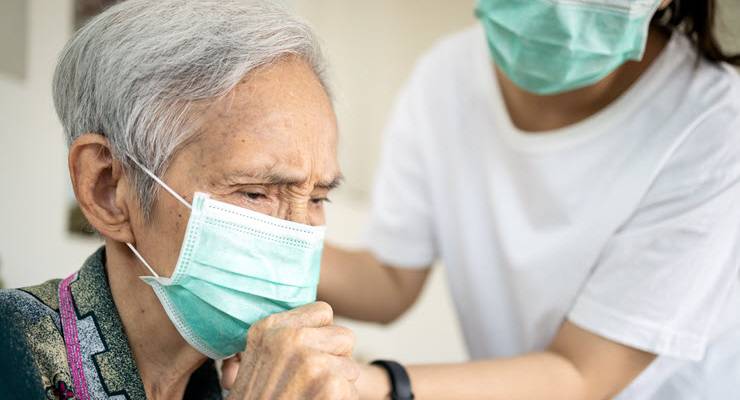
To the surprise and frustration of many health experts, epidemiologists, and ordinary Australians who continue to face heightened and serious risks from COVID, we appear collectively to have decided to move on from the pandemic despite deaths averaging above 50 a day — a level lower than in February, but steadily rising since April.
The current level of deaths per day is far above that during the lockdowns of 2020 and 2021 — two or three times higher. Yet there isn’t even a mask mandate in most places, let along restrictions or lockdowns. It’s an astonishing backflip in terms of both political response and media attention. Politicians, journalists, editors and producers have decided that COVID is no longer worth worrying about. But nor is there any widespread public clamour for action.
But the backflip in just a few months is only the most extreme example of just how weird policymakers, the media and we ourselves are about causes of death. Despite rhetoric about how every life has equal value, every life does not have equal value for us. Deaths in residential aged care — and not just from COVID — receive far less attention from politicians and the media because, as Scott Morrison and Greg Hunt put it so callously last year, they are going to die anyway. Indigenous causes of death now receive far more attention from policymakers than they used to, but most of the mainstream media pays less attention to Indigenous deaths than those of white Australians.
Difference is built into the very way that we measure deaths: a key measure of causes of death is Years of Potential Life Lost, which elevates causes of death for younger people over older people (an example: suicide is a significant cause of death, but far more rare than cancers or heart or lung disease — but comparable to them in terms of Years of Life Lost).
As Crikey has long detailed, we have a particularly irrational view of deaths from terrorism, which over the last half-century has killed a tiny fraction of the victims of preventable deaths such as suicide, car accidents, domestic accidents or lifestyle diseases, but received wildly disproportionate funding and completely distorted our legal system to suppress basic rights in a way that has received far less attention than COVID lockdowns did.
There are plenty of explanations offered by psychologists about such arbitrariness. We’re said to be more relaxed about common forms of death like car accidents and heart disease compared to rare events like terrorism, and forms of death where we feel we have some control compared to those caused by some external force. But the media and politicians play an important role in deciding which deaths are important. Politicians have long exploited terrorism to increase state power and reward arms companies, while the media loves terrorism for its capacity to attract eyeballs.
The result is skewed policymaking, in which trivial causes of deaths attract billions in funding and the full panoply of state regulation, while a fraction of those resources could save far more lives if directed to other causes of death.
That arbitrary and skewed policymaking is playing out right now in relation to COVID, with politicians unwilling to even consider relatively limited non-lockdown restrictions like mask mandates, and proceeding to lift restrictions on unvaccinated workers. “Following expert advice”, once the ubiquitous cry of politicians across the land, is now never heard.
It’s a weird information economy of death, in which particular causes are elevated, publicised and prioritised by the governing class, with often minimal justification in terms of evidence — it’s driven instead by whether industries can profit from them, and by human attention spans. Like car accidents or heart disease, COVID has become part of the furniture in our mental world. But like car accidents or a heart attack, you’re just as dead if you perish from COVID as if you were killed by a more media-friendly cause. Unlike policymakers and journalists, death doesn’t distinguish.








Crikey is committed to hosting lively discussions. Help us keep the conversation useful, interesting and welcoming. We aim to publish comments quickly in the interest of promoting robust conversation, but we’re a small team and we deploy filters to protect against legal risk. Occasionally your comment may be held up while we review, but we’re working as fast as we can to keep the conversation rolling.
The Crikey comment section is members-only content. Please subscribe to leave a comment.
The Crikey comment section is members-only content. Please login to leave a comment.